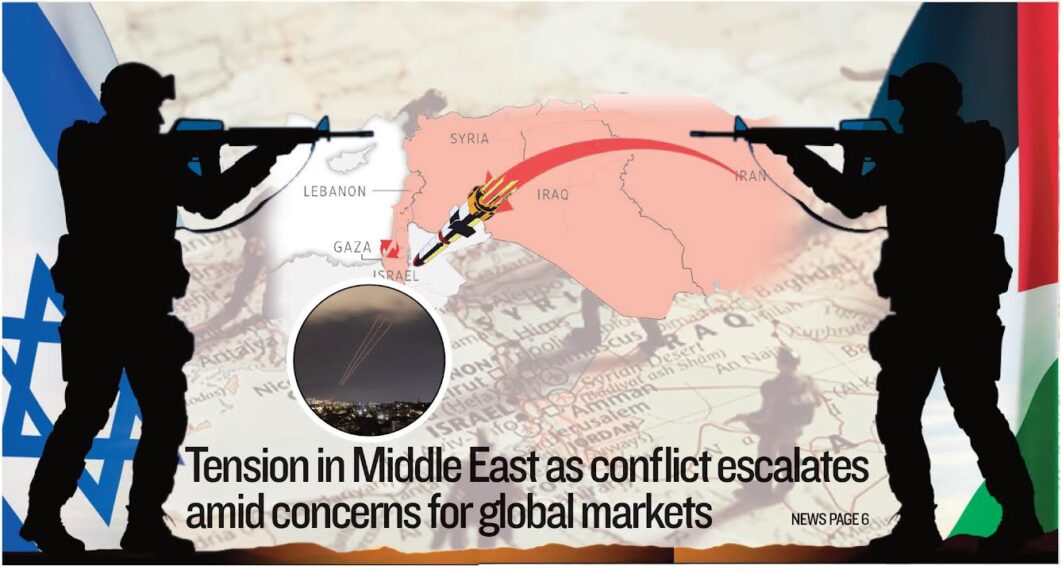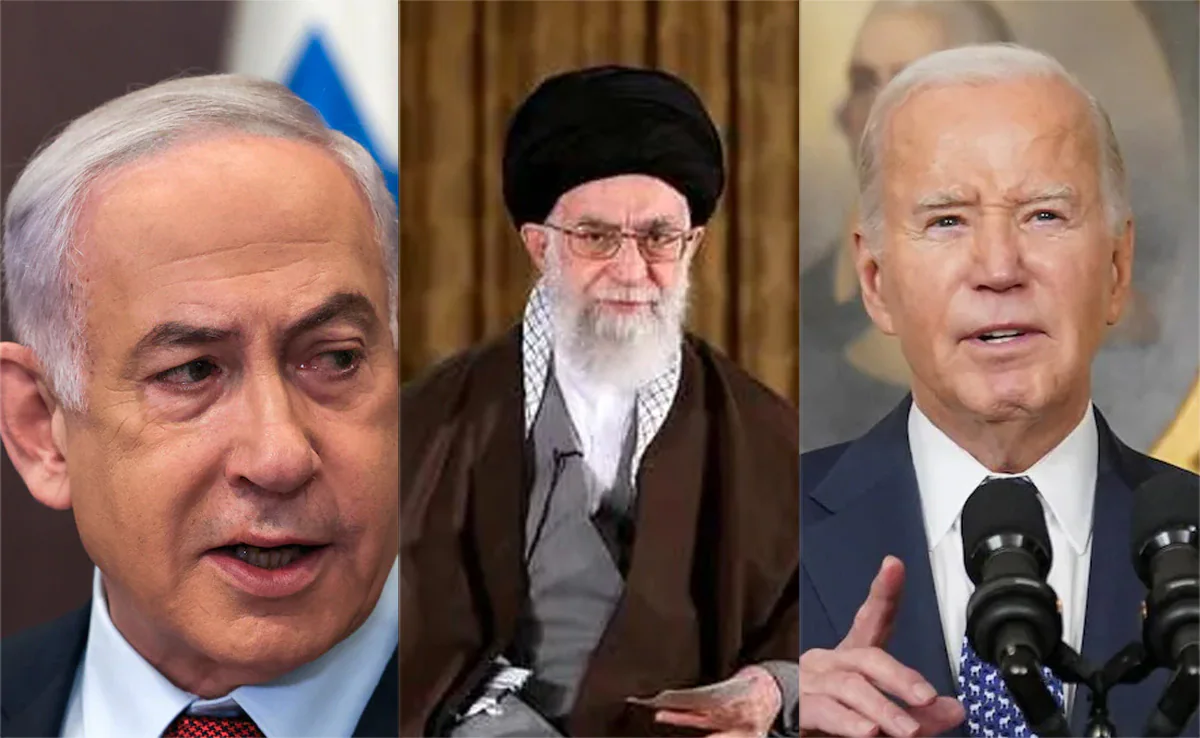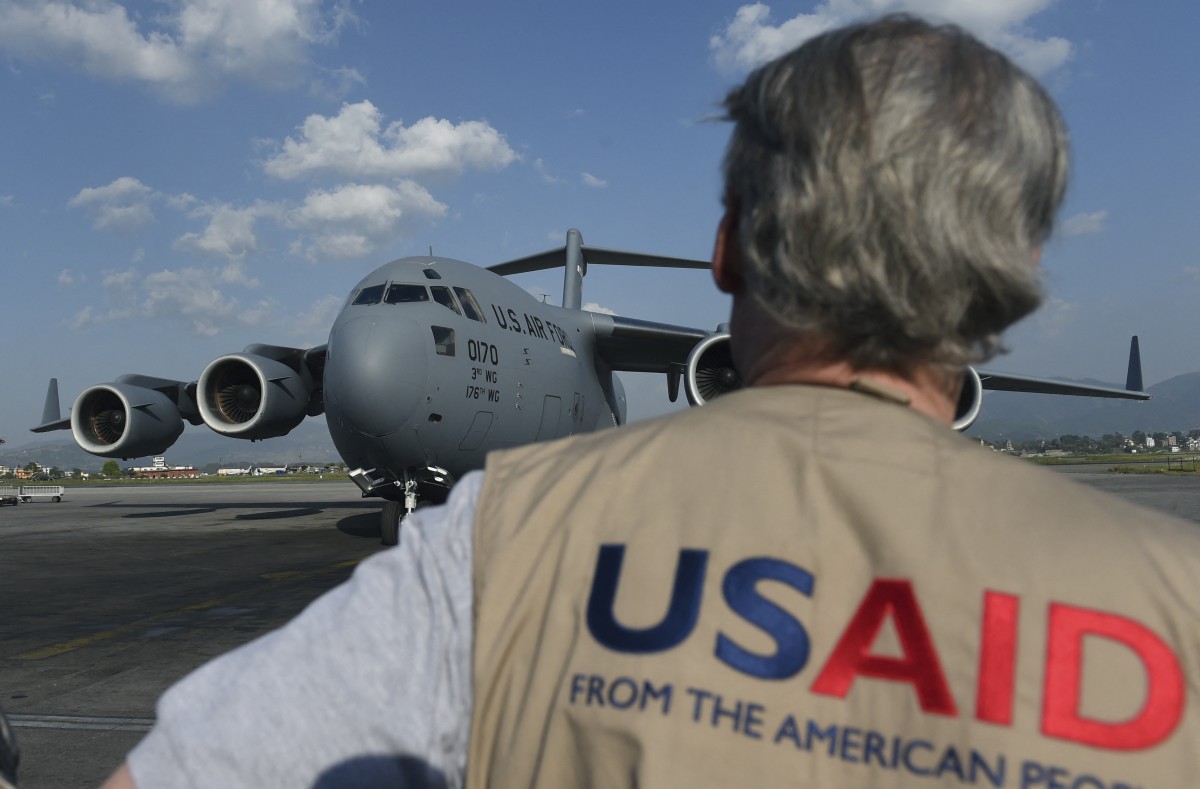 .The world needs development, not missiles exchange, Soremekun
.The world needs development, not missiles exchange, Soremekun
Iran, last night, retaliated after an Israeli strike killed Iranian military commanders in Damascus earlier this month.
Tehran had been threatening to attack Israel after an air raid on April 1, widely blamed on Israel, destroyed Iran’s consulate in Syria, killing 13 people, including two elite Iranian generals.
Following Iran’s one-off attack, Israel has vowed retaliation.
Permanent Representative of Israel to the United Nations, Ambassador Gilad Erdan, has condemned Iran’s invasion of the state while accusing them of violating international law and the UN Charter.
He demanded a meeting of the Security Council immediately to unequivocally condemn Iran for these grave violations and immediately to designate the Islamic Revolutionary Guard Corps (IRGC) as a terrorist organisation.
Indeed, oil traders warned that heightened tensions in the Middle East have always led to a rally in prices – so far to the highest intraday levels in six months. If Iran, one of the world’s largest oil producers, gets directly involved, however, a return to prices of more than $100 a barrel may soon follow.
With global oil inventories already at low levels, an upset in Iran’s oil production, estimated at around three million barrels a day, could spike prices. As the third-largest oil producer in the Organization of the Petroleum Exporting Countries, Iran’s direct involvement in the war will expected to lead to significant movements in the oil market and have a positive impact on oil prices.
In a letter to the President of the UN Security Council, H.E. Mrs. Vanessa Frazier, (a similar letter was also sent to Secretary-General, United Nations, H.E. Mr. Antonio Guterres) Erdan said: “Six months after Hamas’ brutal terror attack on October 7, I wish to express my outrage regarding the attack against the State of Israel by the Iranian regime, which once again undermines Security Council resolutions, fosters instability, and poses a grave threat to international peace and security.
“Today, Iran has launched a direct attack from within its territory of more than 200 UAVs, cruise missiles, and ballistic missiles towards Israel in clear violation of the UN Charter and international law. Iran has also publicly taken pride in the attack. The attack is a severe and dangerous escalation,” he said.
He noted that on multiple occasions, Iran violated international law, which is evident in its actions against Israel and supply of arms to warring states.
“Iran continues to violate its international obligations, evidenced by today’s attack on Israel in violation of Security Council Resolution 2231 (2015), and by accelerating the pace of its weapons transfers to Hezbollah in violation of Security Council Resolution 1701.
Iran has been the architect of instability for years, through Hamas, the Houthis, Hezbollah and other proxies. But it is now standing front and center in its actions to fulfill its ambition to attack Israel,” he said.
He stated that the attacks on Israel are part of a dangerous trend of deterioration as reflected in his letters to UNSC over the past years, posing a concrete threat to the peace and security of the entire region. Israel has warned the international community of Iran’s aspirations, beyond its terror activities and support of terror proxies, including the funding and arming of both Hamas and Hezbollah.
The Iranian attack follows the seizure of a Portuguese civilian cargo ship by the Iranian Revolutionary Guard Corps.
“The gravity and volume of the attacks are unprecedented and are a flagrant violation of Israel’s sovereignty, international law, and Security Council resolutions. Iran poses a direct threat to international peace and brazenly violates the UN Charter and Security Council resolutions.

The time has come for the Security Council to take concrete action against the Iranian threat,” Erdan stated.
On the implication of these attacks on the Middle East and the world, Professor of Political Science at Lagos State University, Kayode Soremekun said the Middle East has always been a theatre of war and conflicts, which has always centred around Israel, adding that the latest issue between Iran and Israel can be seen as a continuation of the situation in Gaza.
“Anytime there is a spark in any part of the Middle East, it is bound to generate tremors in other parts of that volatile region. There is a kind of face-off between Israel on one hand and Lebanon. It’s an old-age animosity we are seeing between Iran and Israel,” he said.
He urged both countries to desist from escalating the crisis, explaining that the world needs development not the exchange of missiles.
He noted that the problem in this case is that in varying degrees, both countries possess nuclear weapons while expressing optimism that they would do what is best for themselves and the world by resisting conflict.
“Because in war, as in life, there are what are called the unintended consequences of intended action, to the extent that they might think they are expecting a certain outcome but might end up with an entirely different one. An example of this is the ongoing Russia-Ukraine war which has defied expectations on both sides, with no one knowing when it would end.
“If they decide to square up with each other, it is possible to predict the onset of the war, but the outcome is unpredictable both for the region and world,” he added.
International Relations expert and conflict manager, Aladetan Abiodun, said the picture of world peace looks very bleak and uncertain against the backdrop of several ongoing wars across different parts of the world.
He called on world leaders particularly the United States and its allies to exercise some element of caution in their coordinated response to this attack because the world is already holding its breath as to what’s to follow.
“The question is when one nation makes an aggressive move. Is the other party likely to retaliate and escalate the conflict or just stand arms akimbo? Or will they back off, allowing tensions to simmer down? Wrong diagnosis of the conflict could lead leaders to make the wrong decision,” he said.
He stated that the attack puts the region on the precipice of a broader war that almost no one seems to want; one that most actors, the United States, Arab states and others don’t want.
“The only concern here is that this attack could further destabilise the Middle East. As you can see, allies of Israel are all coming out to show their support for Israel and I do not doubt that there will be consequences for Iran for this attack.
“The world awaits the response of Israel and its allies. This attack on Israel will not go without a response that I know for sure. What the response will be and the extent of the response is what I cannot say,” Abiodun said.
According to him, the Israeli response is likely to be determined by the impact on the ground in Israel. Death and destruction of military personnel especially civilians.
“If you listen to Israel Defense Forces spokesman Daniel Hagari, he said “Iran did something very serious, very severe this night, as it pushed the Middle East toward escalation. We will do whatever is necessary to defend the citizens of the state of Israel.
“Nevertheless, politics on the world stage is purely based on national interest. I think we should wait for the outcomes of the meeting of America and its allies and let us all monitor the situation closely. Many analysts are of the view that with the war of Russia against Ukraine and Israel against Hamas along the Gaza Strip and the recent Iranian botched attack on Israel, peace in the Middle East and the world, in general, is seriously under threat because this is the first time Iran has launched a direct attack on Israel, unlike the shadow war between both countries before now,” he added.
Research Professor of International Relations and Strategic Studies, Nigerian Institute of International Affairs (NIIA), Femi Otubanjo, said the new development in the region increases the dangers of escalation because if Israel responds to the attack, it would be prolonged and we can’t determine the extent of the escalation and whether it would extend to other countries or involve other nuclear powers.
He stated however that a key action is for America to pressure Israel not to retaliate the attack, given that they instigated it by attacking its embassy in Syria, which led to the death of Iranian generals and others, which is a subtle declaration of war.
“Iran has explained that its attack is a one-off, passing a message to Israel that they are capable of fighting back if they are attacked.
There would still be people in America saying the state would support Israel should attack. This is all about the military-industrial complex in America. It’s about dollars and the sale of weapons, but this is not desirable currently.
“Iran is a major military power. Israel cannot defeat them because it’s going to be an extended war and Israel is already bogged down in Gaza, losing troops in their thousands, so it can’t fight a prolonged war,” he said.
According to him, Israel should also re-evaluate its decision to attack Gaza, as it has not gone how they expected because six months later, they are yet to achieve their objectives.
Senior Research Fellow, Dr Kester Onor, said the new development has made the region volatile considering Iran has fired about 331 missiles, though reports state that 99 percent were intercepted by Israel and its allies.
He noted that these developments have affected the prices of crude oil, which has increased to $90 per barrel and is expected to get to at least $100 in the next few days and OPEC has also cut supply.
Onor stated that these issues would affect trade, the global economy and disabilise economy of many countries.






